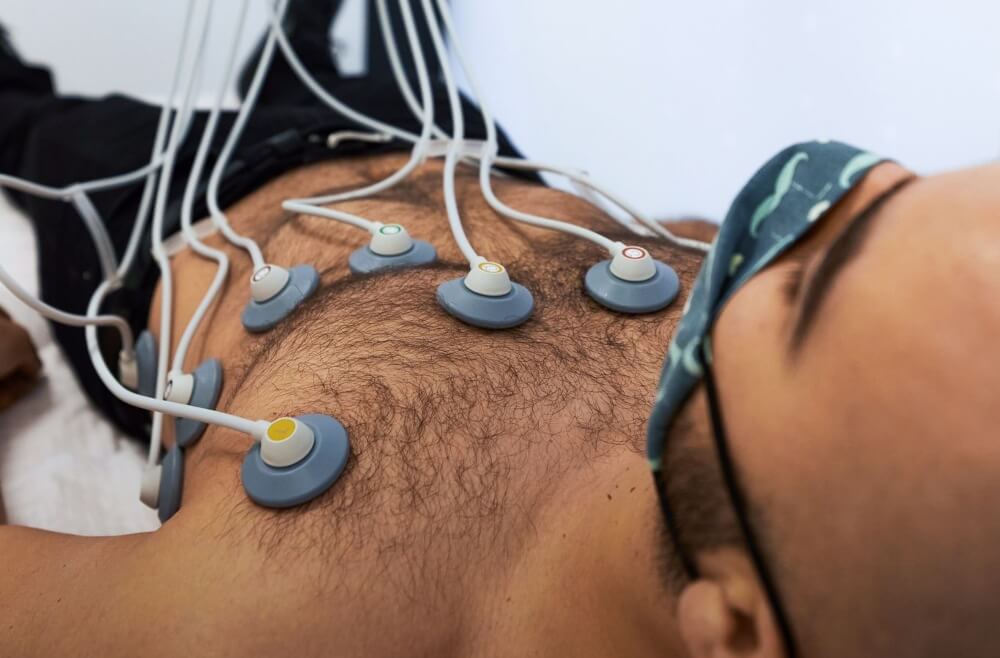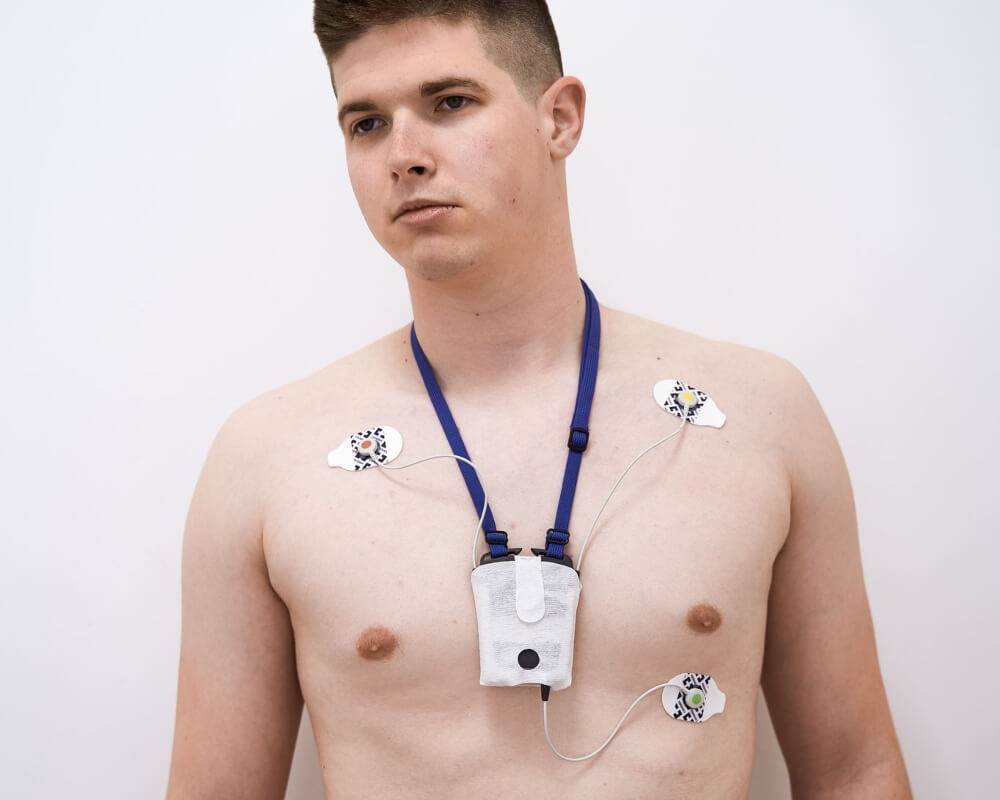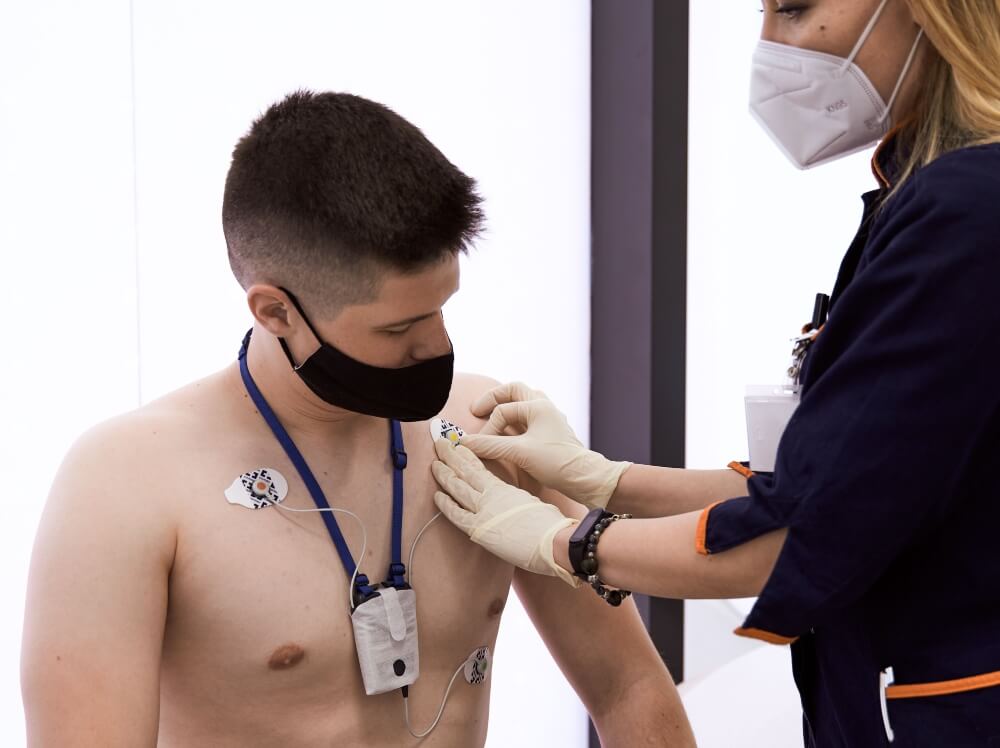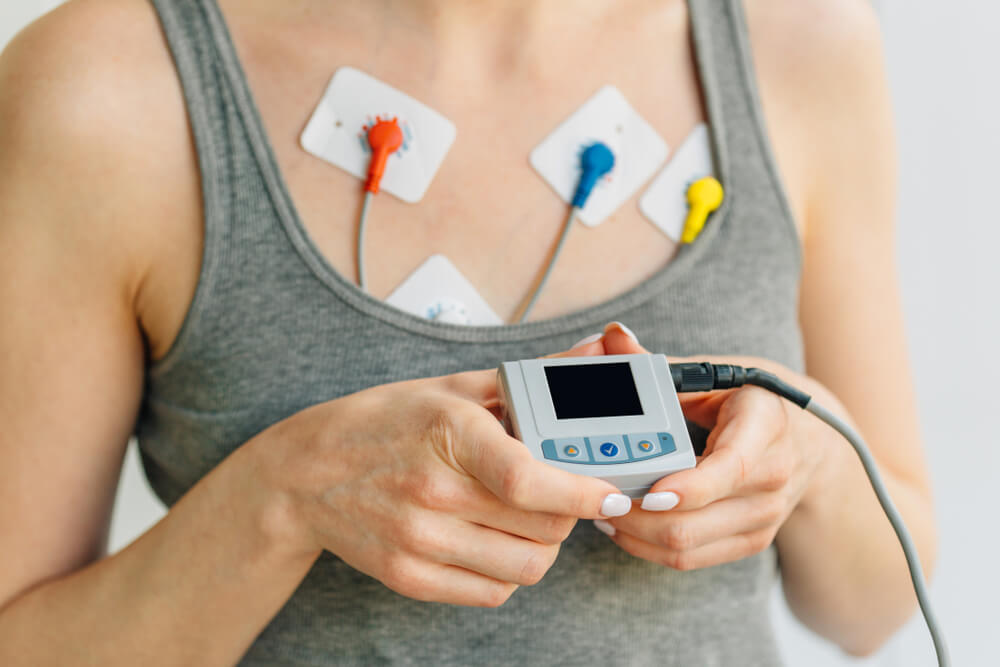The accuracy of the data obtained in this way is much higher than is the case with the monitoring of the heartbeat rhythm through the ECG. The reason is simple – the ECG monitors the heartbeat and its rhythm only during this relatively short procedure of measuring cardiac activity (it usually lasts about ten minutes), while the holter is connected to the patient longer and manages to record the heartbeat over several hours and several days.
Research has shown that a 24-hour blood pressure holter provides a 60% chance of detecting changes on the heart’s ECG, while monitoring for more than four days, the chances of detecting anomalies reach 90%. However, only after seven days there is a chance to get the most accurate results, and then the detection percentage of the changed heart rhythm is as high as 98%.
The data recorded by the holter are important for the doctor, because they give him an insight into the state of the patient’s heart muscle, as well as an insight into the way the muscle functions during the day and the patient’s usual daily activities.
The activity, rhythm and way in which the heart muscle will work is affected by several important factors:
- the time of day (because it will not be loaded the same while we sleep or while we are awake and perform a series of daily duties)
- activity (it is important whether at a certain moment we are standing still or walking, running, climbing stairs, etc.)
- the psychological state plays a significant role in the work of the heart muscle (that is, whether we are calm, excited because of good news or under some kind of stress because of bad news).
If your doctor has recommended you to do a ECG holter on day, two or seven and you are wondering why this diagnostic procedure is important, how the work of the heart muscle is monitored and for which symptoms this method is recommended to the patient, then you will in the following lines, find answers to all these questions and additionally get advice for the most correct behavior during those crucial 24, 48 or more hours.
In which cases is heart holter monitoring recommended?

When the patient comes for a total heart examination and discusses with the doctor about symptoms that occur regularly or occasionally and include some or all of the following: palpitations and skipping of the heart, dizziness, loss of consciousness for an unknown reason (syncope), chest pain; then the best solution is to do an ECG holter, which will help the doctor get additional information on the basis of which he will be able to establish a final diagnosis.
In addition to the holter ECG being used as a diagnostic method for determining the existence of arrhythmias, then for variations in blood pressure, monitoring the condition of patients who have had a heart attack or heart muscle disease and as a method for monitoring the effect of therapy, it can also be used to evaluate the working abilities. Employees in positions that require top physical fitness (pilots, astronauts, divers, parachutists and firefighters) often undergo such examinations. Also, athletes often undergo detailed heart examinations, so the holter is an integral part of that diagnosis, in order to detect possible heart defects.
24 or 48 hours with a holter – everything you need to know
Holter ECG recording is performed by placing electrodes on the patient’s chest, which are connected to a small device the size of a mobile phone that is usually worn around the belt. During a period of 24 or 48 hours (and longer if necessary), the device records the electrocardiogram (ECG) of the patient. The goal of this type of monitoring is to determine how the patient’s heart behaves while he is performing his usual daily activities (getting up, having breakfast, going to work, meetings, having lunch, returning from work, climbing the stairs, having some light physical activity, watching a game and Fig.)
In order for every moment of this recording to be recorded as precisely as possible, the patient has the task of keeping a diary of his daily activities and writing down all the symptoms or changes he notices during the day. Therefore, this diary should contain the exact schedule of activities, their names, then the complaints that occur, their description and the time when they appeared, but also the time when he takes certain therapy for pressure or other possible health problems.
6 tips for wearing a holter correctly
- While wearing the holter, do not remove, move or peel off the electrodes and stickers in order not to interrupt the monitoring of the heart rhythm.
- Do not shower or swim while wearing a heart monitoring device.
- During the period of wearing the ECG holter, you should not approach the microwave oven, metal detectors, laptop, electric brush, or even mobile phones, because their proximity can affect the recording of information on the holter.
- Do not wave your hands too much, as this may affect the operation of the device.
- Accurate keeping of a diary of activities and subjective complaints. In the case of e.g. occurrence of pain due to a certain activity, the time of onset and cessation and the manner in which it ceased (by taking medicine or stopping physical activity) should be stated.
- Although it is not very easy, it is recommended that the patient should carry out daily activities as if he did not have a holter attached.

What happens after removing the ECG holter?
After 24, 48 or more hours, the ECG holter is removed in the doctor’s office, and the data from the device is transferred to the computer, where the doctor later analyzes it and draws conclusions. Some of the parameters it monitors are: mean heart rate, depression of the ST segment, heart rhythm disturbances, pauses in the work of the heart and the duration of certain intervals in the ECG record.
Based on the results, the doctors conclude whether the patient has myocardial ischemia, cardiac impulse conduction disorders, arrhythmia or some other cardiac disorder, based on which a decision is made about therapy and further diagnostics.
Schedule a holter heart monitoring with your cardiologist in the A block
If you need this useful diagnostic procedure, which will bring a lot of useful information to your cardiologist in a very short period of time, then this is the right moment to schedule a 24h Holter or 48h Holter. Pulse Cardiology Center has many years of experience in implementing this diagnostic method, among other things, in patients who had a heart attack, who have an implanted stent or who had some other intervention on the heart, and who are still physically very active and it is necessary to constantly monitor their condition.
For all information about this diagnostic method and scheduling a cardiological examination and ECG holter, please contact us and we will provide you with all the necessary information. On our website you can find more about the other services we offer to our patients.



